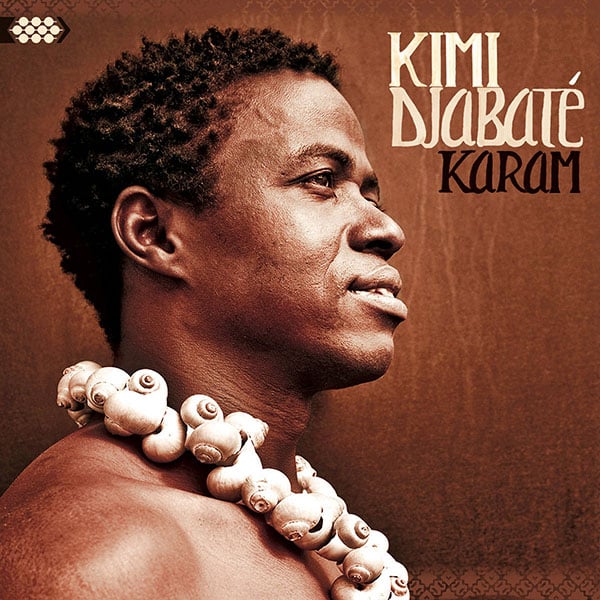
Griots and griot-style singers (West-African singer-poets) are often featured on albums because their cries are astonishing and commanding, but Kimi Djabate of Guinea-Bissau sings like a neighborhood storyteller who just happens to have a good voice, inserting himself into the music with a piece of spoken word, an exclamation, and a laugh — little things, human, eccentric things — that light up the moderate background of balafon (an African xylophone) and guitar.
When he goes soggy on “Ná”, the whole album sinks and has to be revived by a kora(a stringed instrument with 21 strings). When he rises, it rises. The more spectacular touches are not beyond him, as he demonstrates on “Manla”, but he seems happier when he’s going off into Disney-villain cackles on “Mussolu” or rolling the groove of “Bagi” along with a velvet “uh-huh.” Cumbancha’s founder is ex-Putumayo producer Jacob Edgar, and Karam is in the spirit of Putumayo’s solo-artist discs from Habib Koité and Oliver Mtukudzi.


![Call for Papers: All Things Reconsidered [MUSIC] May-August 2024](https://www.popmatters.com/wp-content/uploads/2024/04/all-things-reconsidered-call-music-may-2024-720x380.jpg)



